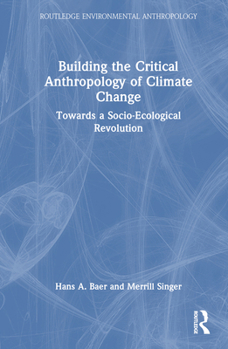Building the Critical Anthropology of Climate Change: Towards a Socio-Ecological Revolution
This book applies a critical perspective to anthropogenic climate change and the global socio-ecological crisis.
The book focuses on the critical anthropology of climate change by opening up a dialogue with the two main contending perspectives in the field, namely the cultural ecological and the cultural interpretive perspectives. Guided by these, the authors take a firm stance on the types of changes that are needed to sustain life on Earth as we know it. Within this framework, they explore issues of climate and social equity, the nature of the current era in Earth's geohistory, the perspectives of the elite polluters driving climate change, and the regrettable contributions of anthropologists and other scholars to climate change. Engaging with perspectives from sociology, political science, and the geography of climate change, the book explores various approaches to thinking about and responding to the existential threat of an ever-warming climate. In doing so, it lays the foundation for a brave new sustainable world that is socially just, highly democratic, and climatically safe for humans and other species.
This book will be of interest to researchers and students studying environmental anthropology, climate change, human geography, sociology, and political science.





